Roughhousing. Horseplay. Wrastling. Whatever you call it, it’s one of the best things about being a dad. I love chasing my one-year-old son, Gus, around the house or pretending that the living room is a lucha libre ring and wrestling with him. No matter how stressed out I’m feeling, hearing one of his big, belly laughs erupt as I swing him around like a monkey makes all my cares go away.
[I share this important post by Brett and Kate McKay from the Art Of Manliness with their written permission because we want your children to thrive!]
Unfortunately, in recent years, horseplay has gotten a bad rap. Parents, concerned about safety, limit the amount of rambunctious play their kids take part in. At least 40% of US school districts have eliminated recess, because teachers need more time to cram kids’ heads full of information for standardized tests, because they’re afraid of children getting hurt and the school being held liable, and even because they think play can encourage violent behavior; according to a principal that banned recess at her elementary school in Cheyenne, a game of tag “progresses easily into slapping and hitting and pushing instead of just touching.”
In their book The Art of Roughhousing, authors DeBenedet and Cohen show benefits and the research behind it. Instead of teaching kids to be violent and impulsive, DeBenedet and Cohen boldly claim that roughhousing “makes kids smart, emotionally intelligent, lovable and likable, ethical, physically fit, and joyful.” In short, roughhousing makes your kid awesome.
The next time your wife gets on to you for riling up the kids, you can tell her: “I’m helping our children develop into healthy, functioning adults, dear!”…right before performing a baby suplex on your daughter.
1. It Boosts Your Child’s Resilience
Helping your child develop a resilient spirit is one of the best things you can do as a parent. The ability to bounce back from failures and adapt to unpredictable situations will help your kids reach their full potential and live happier lives as adults.
Roughhousing requires your child to adapt quickly to unpredictable situations. One minute they might be riding you like a horse and the next they could be swinging upside-down. According to biologist Marc Bekoff in his book Wild Justice, the unpredictable nature of roughhousing actually rewires a child’s brain by increasing the connections between neurons in the cerebral cortex, which in turn contributes to behavioral flexibility out in the real world.
Additionally, roughhousing helps develop your children’s grit and stick-to-itiveness. You shouldn’t just let your kids “win” every time when you roughhouse with them. Whether they’re trying to escape from your hold or run past you in the hallway, make them work for it.
Playtime is a fun and safe place to teach your kids that failure is often just a temporary state and that victory goes to the person who keeps at it and learns from his mistakes.
Roughhousing also helps children learn how to manage and deal with pain and discomfort. You shouldn’t intentionally hurt your kids while roughhousing (obviously), but little bumps and scrapes are bound to happen. Instead of cuddling and kissing a child’s “boo boo,” dads have a tendency to distract their kids from the pain with humor or some other task.
2. It Makes Your Child Smarter
Go ahead. Toss your kid like a sack of potatoes onto your bed. It will help turn him into a Toddler Einstein.
Psychologist Anthony Pellegrini has found that the amount of roughhousing children engage in predicts their achievement in first grade better than their kindergarten test scores do.
As we discussed above, roughhousing makes your kid more resilient, and resilience is a key in developing children’s intelligence. Resilient kids tend to see failure more as a challenge to overcome rather than an event that defines them. This sort of intellectual resilience helps ensure your children bounce back from bad grades and gives them the grit to keep trying until they’ve mastered a topic.
Roughhousing actually rewires the brain for learning. Neuroscientists studying animal and human brains have found that bouts of rough-and-tumble play increase the brain’s level of a chemical called brain-derived neurotrophic factor (BDNF). BDNF helps increase neuron growth in the parts of the brain responsible for memory, logic, and higher learning–skills necessary for academic success.
3. Roughhousing Builds Social Intelligence
I’ve talked to several parents, especially moms, who are afraid to encourage roughhousing because they think it will turn their kids into little bouncing-off-the-walls hellians who will someday wind up in a juvie center. I guess I can see the reasoning behind their concerns–five-year-old play fights with dad; five-year-old thinks violence is fun; five year old turns into violent sadist bent on human destruction.
The problem is that research actually shows the opposite outcome: children who engage in frequent roughhousing are almost always more socially and emotionally adept than kids who don’t.
Dr. Stuart Brown, an expert on play (Yeah, you can be an expert on play. Who knew?) says that the “lack of experience with rough-and-tumble play hampers the normal give-and-take necessary for social mastery and has been linked with poor control of violent impulses later in life.” That’s right. Wrestling your kid around in a play fight ensures that he doesn’t turn into the next Ted Bundy.
Roughhousing builds social intelligence in several ways.
1. Kids learn to tell the difference between play and actual aggression.
2. These kids learn to pick up on and interpret social cues.
3. It teaches children about taking turns and cooperation, give-and-take negotiation where the goal is to make sure everyone has fun.
Sometimes you’re the chaser and sometimes you’re the chasee; sometimes you’re pinning down your kids and other times they’re pinning you down.
Your kids wouldn’t want to keep playing if they were constantly on the losing side. Everyone has to take turns in order for the fun to continue.
What’s interesting is that animals even take part in this back-and-forth role reversal. Adult wolves will expose their bellies and necks to their cubs and let them “win” the play fight. Stronger rats will handicap themselves during bouts of play and let the weaker rat win so play can continue. Marc Bekoff posits that roughhousing may be nature’s way of teaching cooperation to animals, a necessary skill for the survival of a species.
4. It Teaches Your Kid Morality
We all want children who end up like Atticus Finch – moral, upright, compassionate. That’s exactly why you need to body slam your kid every now and then.
When we roughhouse with our sons and daughters, they learn boundaries and the difference between right and wrong. If they start hitting hard, aiming below the belt, or becoming malicious, you can reprimand them and then show by example what’s appropriate roughhousing behavior.
Also, roughhousing teaches our children about the appropriate use of strength and power. As I mentioned earlier, when we roughhouse with our kids, we often take turns with the dominant role. Because we’re so much bigger and stronger, we have to handicap ourselves.
The implicit message to your child when you hold back is: “Winning isn’t everything. You don’t need to dominate all the time. There’s strength in showing compassion on those weaker than you.”
5. It Gets Your Kid Physically Active
Dads have a profound impact on their children’s physical fitness. Studies have shown that the father’s, (not the mother’s), activity level and weight strongly predict what their children’s activity level and weight will be as adults. If you want your kids to be healthy, active, and fit, then you better be healthy, active, and fit yourself.
What better way to teach your kids to live an active lifestyle than by getting down on the carpet with them for some vigorous roughhousing instead of everyone vegging out in front of the TV? All that running, tumbling, and tackling helps develop strength, flexibility, and coordination in your child.
6. Roughhousing Builds the Father-Child Bond
Some of my best memories of my childhood were when my dad roughhoused with my brother and I. When we were smaller he’d do the obligatory “ride the horsey.” When we got a little bigger we moved to slap fighting, which consisted of my dad dramatically swirling his hands in front of him like you see fighters do in the old kung fu movies and then very lightly smacking our heads with quick open-handed jabs. Slap fights were the best.
You probably have similar memories of roughhousing with your dad. Roughhousing offers dads a chance to physically show their affection to their kids in a fun and playful environment. When Gus and I wrestle, there are lots of hugs and kisses scattered in-between pretend sleeper holds.
When you throw your kids up in the air and catch them or swing them upside-down, you’re building your child’s trust in you. As they take part in somewhat risky activities with you, your kids learn that they can trust you to keep them safe.
How to Roughhouse With Your Kids
This is such a helpful video:
The beauty of roughhousing is that there’s no right or wrong way to do it.
Roughhousing is just spontaneous, improvised play that’s both rowdy and interactive. Don’t think too much about whether you’re doing it wrong or right. Just have fun.
With that said, the The Art of Roughhousing provides a few guidelines to keep in mind while you’re tossing your kids in the air:
Safety first. While you want to get rough and rowdy with your kids, you don’t want to get too crazy with them. Just be aware of your surroundings and keep your kids away from areas where they can get hurt. Also, keep in mind that a child’s joints are prone to injury when roughhousing. Save the joint locks for when your kids are older and fully developed.
Don’t roughhouse right before bed. For me, I have a tendency to want to horse around with Gus right before bed. I’m going to miss the little guy while he’s asleep, so I want to get in as much daddy time as I can before he hits the hay. But just like adults, kids need some time right before bed to relax and ramp things down so they can get into sleep mode. Unless you want a little night owl joining you on the couch to watch late-night TV, roughhouse earlier in the day.
Roughhousing is for girls, too. While boys are naturally prone to engage in roughhousing, make sure you don’t leave your daughters out of the fun.
Studies show that girls who roughhouse with their fathers are more confident than girls who don’t. And some studies even indicate that roughhousing can prevent your little angel from growing up into one of those Queen Bee, Mean Girls that psychologically terrorize other girls.
If you’re looking for specific things to do with your kids while roughhousing, I definitely recommend picking up a copy of The Art of Roughhousing.
***For the Full Spike Protein Protocol (including NAC) to protect from transmission from the “V” and to help those who took the “V”, go here.

Deep Roots At Home now has a PODCAST! We are covering everything from vaccines, parenting topics, alternative medicine. Head over today and like, share and download a few episodes! https://buff.ly/3KmTZZd
I’d love to stay connected with you, and here is one way…
And please join me for my FREE newsletter. Click here.
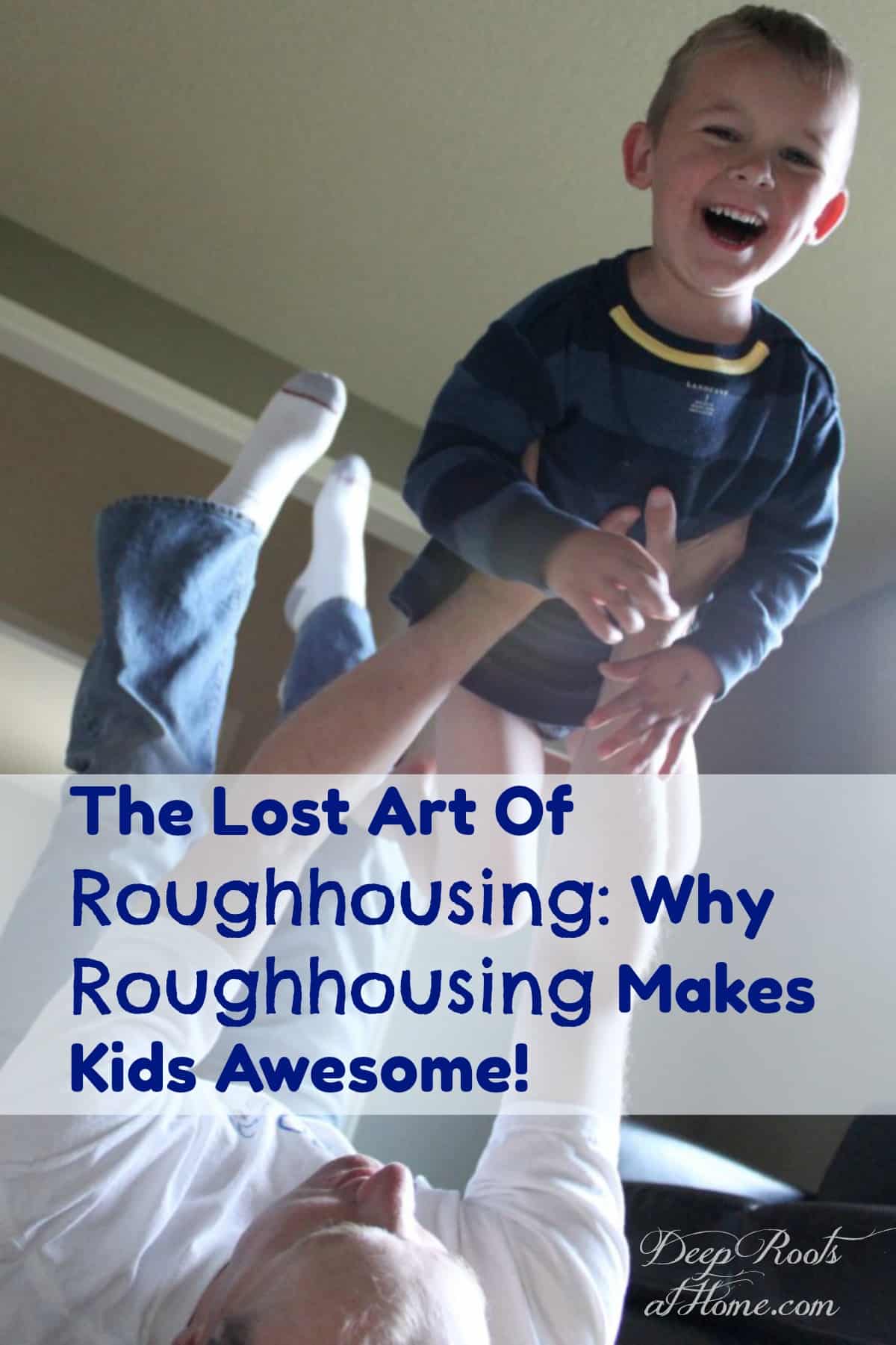
©2024 Deep Roots at Home • All Rights Reserved


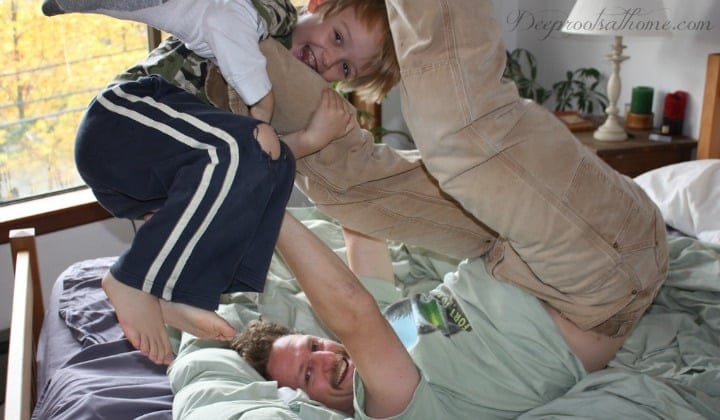
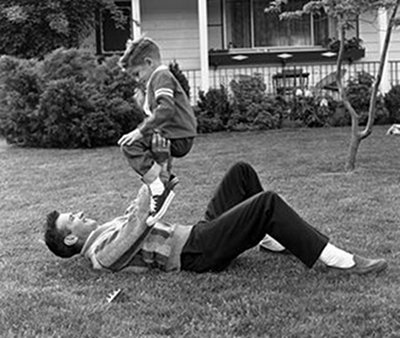
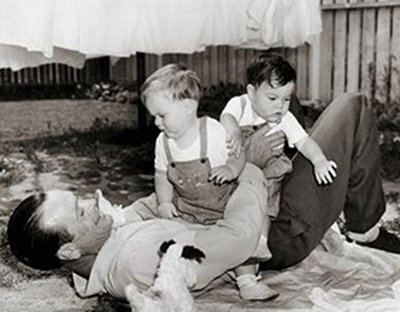


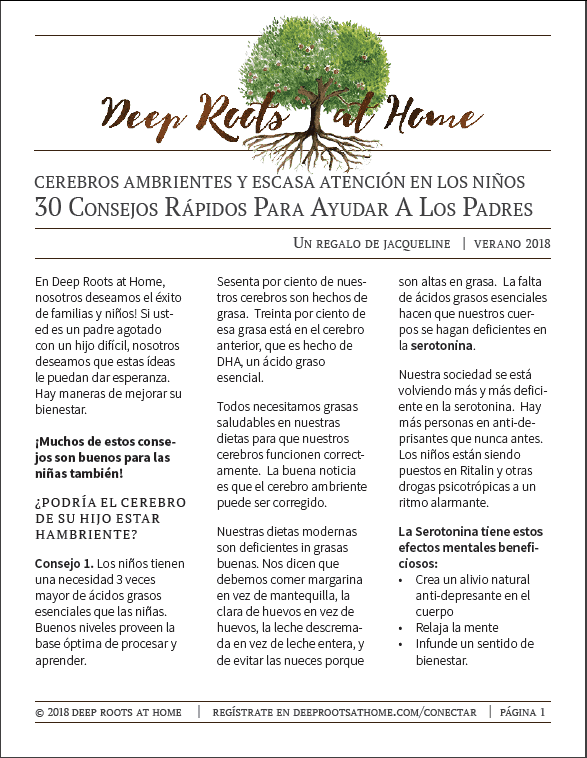

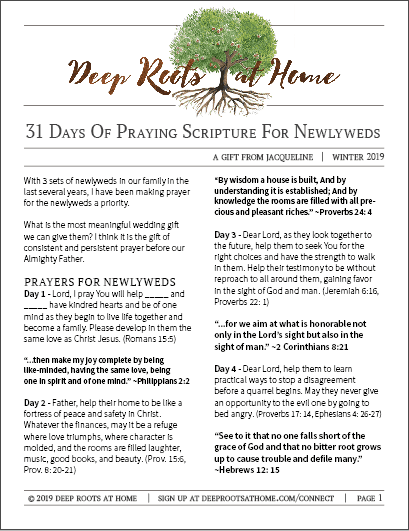

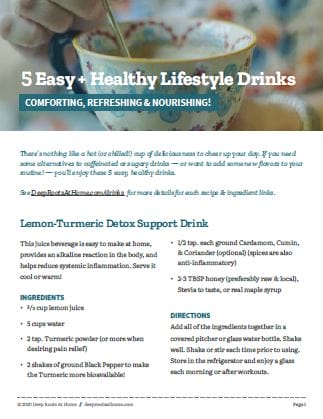


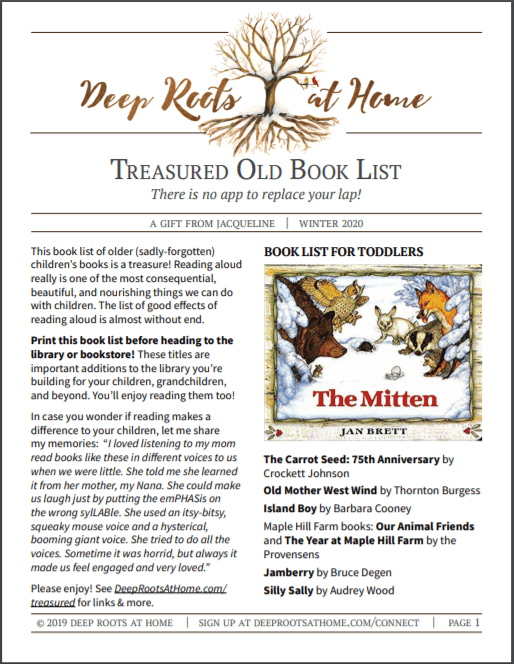

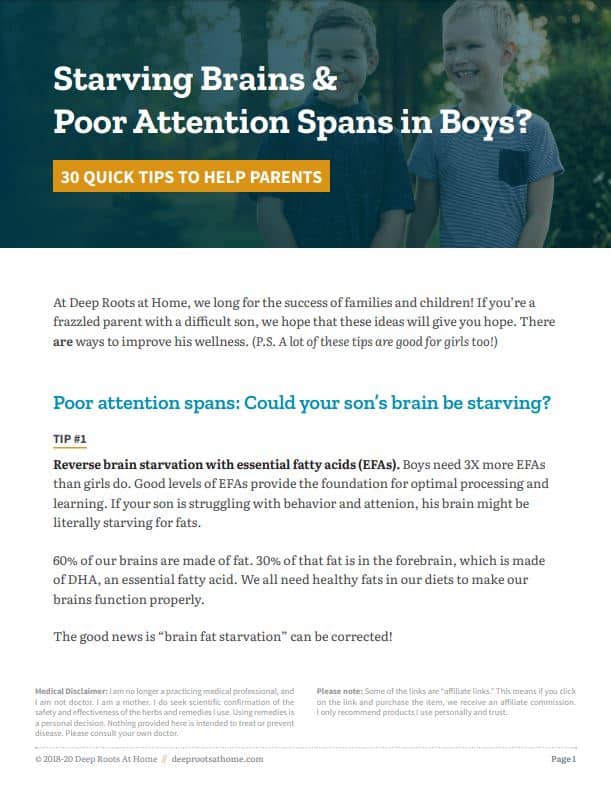


Related